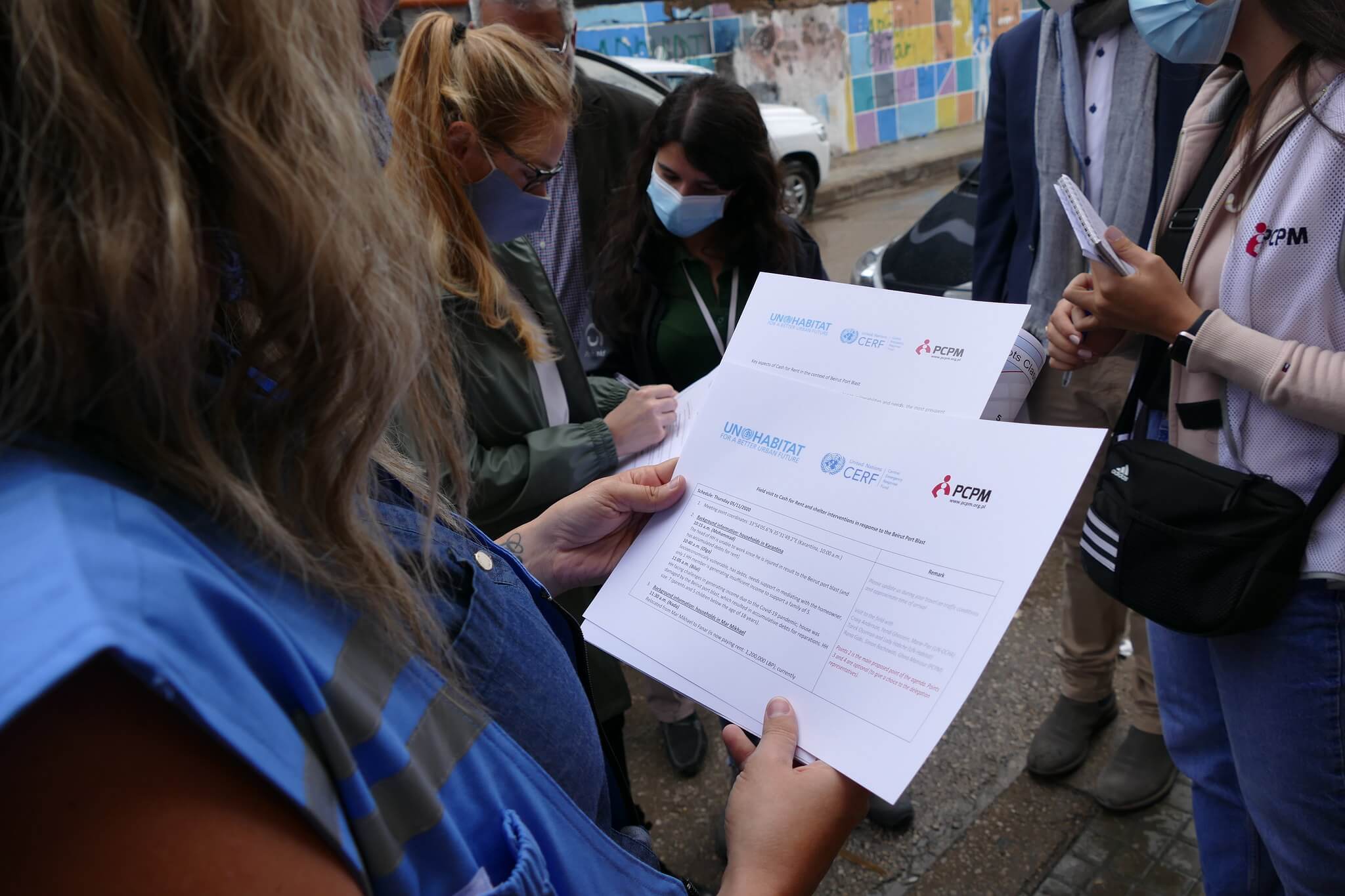Basic Info
Ensuring shelter options to the most vulnerable families affected by the Beirut Port explosion
| Funding amount: US$ 999,990 |
Donor: United Nations Central Emergency Response Fund (UN CERF) |
| Duration: 2020-2021 | Location: Beirut, Lebanon |
| Status: Closed |
Number of beneficiaries: 816 households | 3,201 individuals |
The project aims to target vulnerable households that include migrants and refugees, as well as women, children, and youth who were affected by the explosion residing in the Rmeil and Medawar cadasters through cash for rent. The project aims to target families who needed relocation as well as vulnerable families who stayed and were experiencing socio-economic shocks and increasing vulnerability in covering rent and shelter expenses.

Through this project, UN-Habitat aims to support at least 800 vulnerable households affected by the Beirut Port explosion with cash assistance for a period of four months in aims to help these families secure their rent, enhance tenure security, and avoid evictions. These same households are also to be provided with awareness-raising sessions on sexual and gender-based violence, protection against sexual exploitation and abuse and COVID-19 preventative measures.
The success of this project depends on the coordinated efforts from the Polish Centre for International Aid (PCPM), the Municipality of Beirut, and the Lebanese Women Democratic Gathering (RDFL). Among the key partners, the Municipality of Beirut is providing information on targeted beneficiaries and buildings affected by the Beirut Port explosion. The Polish Centre for International Aid (PCPM) facilitates cash for rent assistance to identified beneficiaries, along with the COVID-19 awareness campaign. The Lebanese Women Democratic Gathering (RDFL) facilitates the awareness campaign on sexual and gender-based violence and the protection from sexual exploitation and abuse campaign.